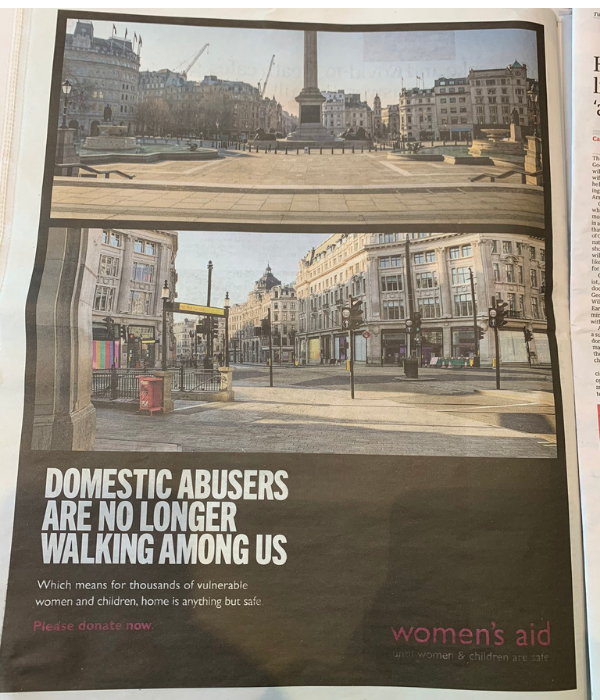A bad ad at a bad time
Despite trying to address a vital and alarming issue, this Women’s Aid advert makes a series of critical mistakes that undermine the charity’s good intentions.
- Written by
- SOFII
- Added
- November 26, 2020

Editor’s note
A terrible side effect of the coronavirus crisis has been the rise of domestic violence across the world, including in the UK. Around the country campaigners, individual victims and charities have been highlighting this urgent and important issue – putting pressure on the government to do more to help vulnerable women and children.
Yet this advert, which appeared during the UK’s lockdown and was intended to highlight the plight of victims locked indoors with their abusers, makes some crucial mistakes. This is such a shame as it could have done so much more. Taking a critical look at this ad can help us all learn from what is clearly an unfortunate misstep – urgency to go to print should not trump smart campaigning or effective fundraising.
A ‘clever’ ad, with shortcomings
- There are no humans in the poster. Whilst we understand why in terms of the message, this means there’s no eye contact. Therefore, it’s unlikely to attract people’s attention.
- There is no proposition, direct or otherwise, so no case for support is put forward to the potential donor.
- It therefore follows that there is no indication of what a gift to the organisation will achieve. Donors like to know what their money will do.
- There is no call to action, nothing to tell potential donors what action or steps to take next if they wish to help urgently.
- This is a big one: there are no contact details. No website link, no phone number.
- There is no coupon, no address to send a donation, nor a shopping list. There are no credit card options or suggested giving amounts. How are donors supposed to act on the message ‘donate now’?
- On an aesthetic and practical level, the reversed-out type is hard to read.
- Essentially, this is just a bald ask for cash but with no real options to donate and no clear ask beyond the money. Given the urgency of the problem, this feels like a real missed opportunity.

















